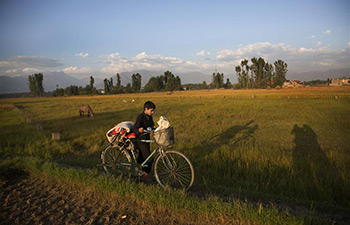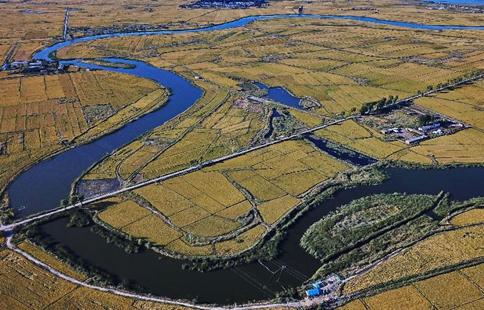KATHMANDU, Sept. 17 (Xinhua) -- As Nepal is adopting a federal system of government, closer attention to sequencing political, financial and administrative decentralization will be important, the World Bank said here on Sunday in its latest "Nepal Development Update."
The World Bank said in a statement that a large proportion of federal spending is expected to be passed on to subnational governments, ultimately increasing public spending from fiscal year 2018.
However, the Update cautioned that unresolved issues surrounding the implementation of the new federal architecture could challenge budget execution, particularly during the upcoming year.
"Nepal's new fiscal federalism system suggests a marked asymmetry between stronger decentralization of spending responsibilities and relatively unchanged low decentralization of tax collection powers," the statement read.
Takuya Kamata, the World Bank's country manager for Nepal said that the subnational governments will play an increasingly critical role in Nepal's public expenditures.
"A system of fiscal transfers that is designed for transparency and predictability and supported by a small set of simple rules, could go a long way in helping meet the development objectives of federal Nepal," the statement quoted Kamata as saying.
Meanwhile, in its semi-annual assessment of economic performance, the Update noted that economic activity in Nepal has been highly impacted by severe floods affecting over a third of the country.
"Economic growth is expected to be lower than earlier forecast and is expected to average 4.5 percent over the next two fiscal years," the statement said.
Over 80 percent of land in the southern Terai, the country's food basket, was affected in the August floods that killed over 100 people and displaced thousands of families.

















